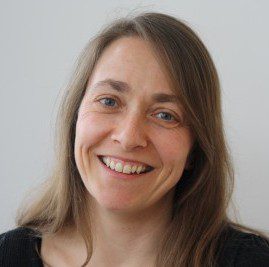BAMEed – “Why Am I, An Asian Man, Less Likely To Be Seen In Leadership Roles?”

Penny Rabiger talks us through the first year of the BAMEed Network

The BAMEed Network is a movement for all. Its aim is to ensure visible diversity in the education sector. It is a network for support, challenge and advice. The BAMEed Network held their first conference on the topic of Unconscious Bias in Birmingham earlier this month.
It is amazing the speed with which things moved for this grass-roots organisation, much of it facilitated by simple technology. Opening the BAMEed Network’s inaugural conference, founding member, Amjad Ali jokingly declared: “BAMEed, as sponsored by WhatsApp”.
The initial idea came about through a Twitter chat between Allana Gay, Deputy Headteacher at Lea Valley Primary School and Amjad Ali, Assistant Headteacher at Aureus School.
Abdul Chohan, Director at Olive Tree School, joined them as the vision took shape, followed shortly by me.
While ‘two Muslims, a Catholic and a Jew meet in a hotel room’ may sound like the opening of a bad joke, this is in fact what happened.
After months of late-night and early-morning WhatsApp group chat (to fit around our day jobs and other commitments), and sharing plans through Google Docs, the four of us met together in the same room for the first time the day before the conference, in a hotel room in Birmingham.
Nothing could compare with the joy with which we embraced each other and set about to do some last-minute planning for the event.
Network news
Going back to that initial online discussion, it became immediately clear that others across the country were excited to get involved in a movement through which people might start to find ways to address the lack diversity in our nation’s schools.
Even in areas like London, which serve diverse populations, there is a distinct lack of Black, Asian, and Minority Ethnic staff members in schools.
In settings where they are present, BAME colleagues are often more commonly seen in the supporting professions such as teaching assistants or junior roles, rather than in positions of greater responsibility.
So, the first step was to set up the @BAMEedNetwork Twitter account and get to over a thousand followers in just a matter of days. In my professional life, my role covers community-building, which you can’t do without good marketing, PR, clear and concise communication.
But even though it’s a great challenge for any organisation to try to articulate their vision in just 140 characters, and only an estimated 4% of teachers use Twitter in England, it is often a good place to start to get your message out as simply as possible and to gauge what it is people might want from a network like BAMEed.
The next step was to create a website that could open up participation beyond Twitter and give more space to host some of the products of our aims.
People wanted to see more statistics and evidence for the lack of diversity in our workplace as well as some of the reasons attributed to its causes and perpetuation. It was important to us to have a place where there could be a growing knowledge base, a space for discussion and a way of harnessing all of this into some practical action.
Taking aim
Since then, our course of action has been clear. A simple, quick win can be formulated through a coaching model that we’ve seen work in other grass-roots organisations, such as WomenEd. We now have coaches and coachees paired across the country, with a commitment to work together to support a greater presence of BAME educators in the sorts of roles coachees wish to occupy in their schools.
If the motto for WomenEd is ‘10% braver’, I am not sure what the equivalent would be for BAMEed with regards recruitment. It’s a fact that employers’ unconscious bias, and often our own internalised incorrect notion of what a leader looks like, will hold BAME applicants back, no matter how brave or qualified they are for the job at hand.
It can be hugely satisfying to see someone else flourish as the result of one’s support. And it can be obviously gratifying to galvanise oneself to forge ahead, sometimes against the odds, and seize that role with an ally ready to challenge and support you along the way.
Another quick win for us was to compile a list of BAME educators that are willing to be called upon for public speaking opportunities.
All too often, we see conferences and events that have white male after white male in their line-up and there is little or no diversity represented.
Conference organisers struggle because they claim the pool is small, so we aim to address this by first calling out conferences as they start to formulate their speakers for the day, and by offering them a choice from our ‘stable’ of speakers, panel members, workshop facilitators and so on. This way there can be no barriers to creating a better, more diverse representation at their events. We work closely with WomenEd in this to make sure we are targeting the right people and organisations.
A working network
The next obvious step from there was the idea of our own conference. We wanted a place to explore, meet and discuss further some of the core issues behind why BAMEed was set up in the first place.
The original Twitter conversation went along the lines of Amjad asking, “Why am I, an Asian man, less likely to be seen in a leadership role at a school than my white colleagues?” To which, Allana asked, as a black woman, “you think you have an issue? Try being me”.
Unconscious or implicit bias has become quite a hotly debated topic of late and this seemed like an apt and highly relevant way to access the issues that Allana and Amjad had raised. From my perspective in particular, it seemed like something accessible to all, and that affects us all, no matter our declared cultural heritage.
We are stronger together, there is strength in diversity, and when we all engage we all stand to gain from redressing some of the inequalities peddled to us through what is assumed to be a meritocratic system.
We must invite not only cultural diversity but also a level of diversity of thought that is severely lacking in the traditional power relations we often blindly accept in our schools and our society as a whole.
Save the date
That winter, we set the date for a time that felt suitably far off in the distance, at the start of June. We ran a poll to see which area of the country people felt most able to reach. Once we knew which city was most popular, Dame Elizabeth Cadbury School in Birmingham volunteered to host us.
Staff and students did a sterling job of organising the logistics, food, and wonderful prefects to help people as they arrived. None of us realised how quickly the day would come around. None of us anticipated that we reach over 200 delegates signing up to join us in a matter of weeks of releasing the tickets.
We were delighted that we had a broad range of speakers from schools and through to higher education. Along the way, both the London Leadership Strategy and Leeds Beckett University generously and proactively offered us sponsorship, which meant we could pay expenses to the speakers who took time out of their weekend and travelled in to Birmingham to be with us.
It was an exciting day of keynotes and workshops, covering a range of topics which all explored the overarching theme of unconscious bias.
The delegates came from far and wide and ranged from Early Years practitioners to primary and secondary teachers, through to university professors. Attendees also included academics, governors and people from unions, as well as charities and social enterprises that work with schools. There was much lively debate and enquiry both online and off, from attendees and those that were following the day from elsewhere. We were even trending on Twitter for 5 hours!
This is just the start for the BAMEed Network. The conference has seen pledges from people to take away things they have learned from the day. We have a list of people volunteering to be regional leads for the network nationally. We gathered lists of people willing to write for Schools Week, Teachwire and other national education publications. We got names of people interested in becoming school governors that we will match with schools or who want to participate in a coaching programme for potential London headteachers.
There is more work to be done and much energy to keep building and growing the movement across both BAME and non-BAME educators. In a world where we seem to be increasingly disenfranchised, where people are split across political, social, class, religious and racial divides, it seems just the right time to keep reminding ourselves that there is great strength in difference, and together we can ensure that our school workforce reflects the diversity of our society as a whole.
Penny Rabiger was an English teacher for 10 years, has since been a director at The Key service for school leaders and governors, head of membership at Challenge Partners, and now works freelance supporting a range of education organisations. She is a keen blogger, Chair of Governors at a primary school, member of the Board of Trustees at a multi-academy trust and a steering group member of the BAMEed Network.












